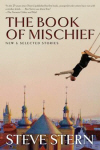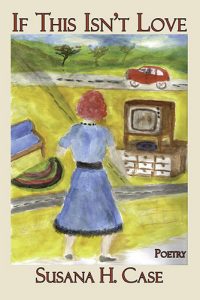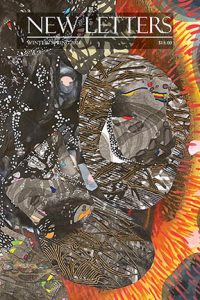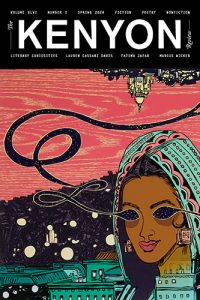The Book of Mischief
In Steve Stern’s story collection The Book of Mischief, rabbis and lonely adolescents will themselves into flight. From such heights the stories track the Jewish trajectory from nineteenth century shtetl to post-assimilation present; from Galicia, the Lower East Side, the North Memphis Pinch to the Borscht Belt. We might expect to find familiar characters out of Singer, Shalom Aleichem, Woody Allen, and Phillip Roth. But Stern’s perspective is wholly his own. Taking off into surrealism and fairy tale, he observes the mortals below in the places they’ve come to ground and misses not a crumb of realist detail.
In Steve Stern’s story collection The Book of Mischief, rabbis and lonely adolescents will themselves into flight. From such heights the stories track the Jewish trajectory from nineteenth century shtetl to post-assimilation present; from Galicia, the Lower East Side, the North Memphis Pinch to the Borscht Belt. We might expect to find familiar characters out of Singer, Shalom Aleichem, Woody Allen, and Phillip Roth. But Stern’s perspective is wholly his own. Taking off into surrealism and fairy tale, he observes the mortals below in the places they’ve come to ground and misses not a crumb of realist detail.
Stern uses surrealism to foreshadow and look back at a history that his characters, unknowingly, both run from and run towards. The border is thin between the power of dreams and superstitions, where demons and spirits hide, and the requirements of the everyday, where practicality is required to fit in and survive. The strongest stories are set in the southern Pinch district, where defamiliarization seems most accentuated.
In “The Tale of a Kite,” an exasperated father despairs at the influence on neighborhood youth of a flying Hasid rabbi. The fragile accommodation of his generation, immigrant tailors and butchers, by the local political machine feels threatened along with the fathers’ hopes that their sons will move up and become “indispensable”—and therefore, safe.
. . . All the blind superstition of our ancestors . . . how it managed to follow us over an ocean to such a far-flung outpost as Tennessee? Let the goyim see a room like [the rabbi’s] with a ram’s horn . . . with the schnorrers wrapped in their paraphernalia mumbling hocus-pocus instead of being gainfully employed and right away the rumors start. The yids are poisoning the water, pishing on communion wafers, murdering Christian children for their blood. . . . A room like this, give or take one flying rebbe, can upset the delicate balance of the entire American enterprise.
In “Moishe the Just,” a group of pre-adolescent cheder boys, goaded by their resident romantic fantasist, Nathan, try to determine whether Moishe, the junkman, is a lamed vovnik, one of thirty-six holy men secreted in the world by God. Their test backfires into farce and tragedy. The old junkman’s reaction: “‘Bed, bed boychiks. Somebody better potch dere tushies.’ When he saw that no one but himself was laughing . . . his amused expression sagged like a sack whose bottom drops out in the rain.” The boys realize that somewhere the other thirty-five holy souls have lost their innocence, too:
That was something that Nathan had neglected to tell us . . . when you exposed one just man, you as good as exposed the lot. We understood this better after the storm finally broke in Europe. At the same time the swollen river overflowed the Pinch. North Main Street was under water, and the high ground was awash with homeless families and bedraggled animals. For those of us who were able to read the signs, we knew that it was the beginning of the end of the world.
This is a history infused with a Borgesian infinity.
The characters speak as if the language has been passed through a translation program with someone’s Dybbuk Zadie inside. The tree-climbing nebbish, Zelik Rifkin enters the dreams of the neighborhood while everyone sleeps outside in the park on hot summer nights. His rumpled Hebrew teacher comments: “Once the Tree of Life I have climbed . . . I, Aharon Notowitz that knew personally what are calling the wise men a holy influx. This by the heart and yea even in the pants I am knowing, when I would wear the garment of light that it was custom-tailored . . . ”
Characters fly against restrictive tradition and hit inexplicable transformations that resonate beyond just Jewish-American experience. A second-generation businessman is driven back to the old Pinch neighborhood to write a book of divine inspiration despite lack of belief and resistance. The story becomes a meditation on the origin of creative inspiration. In an ironic take on romance, a couple in an arranged marriage meet out of the context of their nuptial constraints, fall in love with their fantasy doubles, and never wise up. A man loses his soul when he takes a dare and ends up following the Pinch into drug-infused ghetto violence and decline. At a Concord Hotel wedding, a Borscht circuit stand-up comic dybbuk inhabits a Marjorie Morningstar bride pouring out shtick.
Stern parses the “American enterprise,” the gains and losses to find the creative imagination of old-world superstition embedded even in the arriviste kitsch of the present. The cumulative impact of The Book of Mischief is a sly questioning, laden with elegiac sadness over a lost world that somehow can’t stay lost.





